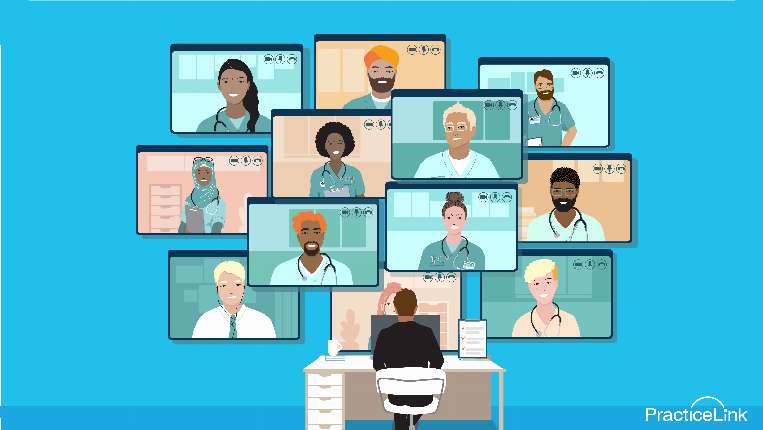Ensuring diversity and inclusion in physician interviews
 Posted by Megan Trippi
Posted by Megan Trippi

Diversity and inclusion seem to be a hot-button topic in today’s world. If you want your organization to be a place with high morale and an inclusive environment and culture, you will want to look into ensuring diversity and inclusion in physician interviews and throughout your recruitment process.
The importance of diversity and inclusion
Diversity in physician interviews can bring many perspectives, experiences and ideas to the table. It fosters innovation, promotes culturally sensitive care and enhances patient outcomes.
According to the National Institutes of Health, "some patients feel more comfortable with health care providers who share or understand their language, race, ethnicity, or other cultural characteristics. Research suggests that a diverse health care workforce may also improve patient satisfaction, patient-clinician communication and access to care."
Plus, a diverse physician workforce helps address health care disparities and improves access to quality care for underserved populations.
Creating an inclusive interview process
To ensure diversity and inclusion in physician interviews, it’s important to establish an inclusive interview process from the beginning. This can include:
Diverse interview panels
Include individuals from different backgrounds and experiences on the interview panel. This will provide a wider range of perspectives and reduce bias during the evaluation process.
Structured interview questions
Develop standardized interview questions that assess candidates’ cultural empathy and understanding of diversity-related issues. This ensures consistency and fairness in evaluating candidates and their commitment to diversity and inclusion.
Implicit bias training
Conduct training sessions for interviewers to raise awareness about implicit biases and provide them with tools to mitigate their influence. This training helps interviewers recognize and challenge their unconscious biases, promoting fair assessments.
Outreach
To attract a diverse pool of candidates, you can use these proactive outreach and recruitment efforts:
- Collaborate with diverse organizations
Partner with organizations that focus on underrepresented communities or communities facing health disparities. Engage in outreach activities such as career fairs, mentorship programs or educational workshops to encourage aspiring physicians from diverse backgrounds.
- Scholarship and fellowship programs
Establish scholarships or fellowships targeted at underrepresented groups in medicine. This can help alleviate financial barriers and provide opportunities for talented individuals who might otherwise face challenges in pursuing a medical career.
- Foster inclusive networks
Foster relationships with medical schools and organizations committed to diversity and inclusion. Actively engage with diverse communities to build trust, encourage applications and showcase a welcoming environment.
Evaluating cultural empathy
Assessing candidates’ cultural competence and sensitivity is fundamental during physician interviews. You can evaluate cultural empathy with:
Behavioral interviews
Develop scenarios that test candidates’ ability to navigate culturally diverse situations and address patient needs sensitively. This exercise allows interviewers to evaluate candidates’ communication skills, empathy and understanding of cultural nuances.
Support and mentorship
Creating a diverse and inclusive physician workforce goes beyond the interview process. Establish support networks, mentorship programs and ongoing diversity training to retain and develop diverse talent within your organization.
Ensuring diversity and inclusion in physician interviews is a step toward building a more representative organization and facility. By implementing specific strategies, your organization can attract and retain a diverse pool of talented physicians.

